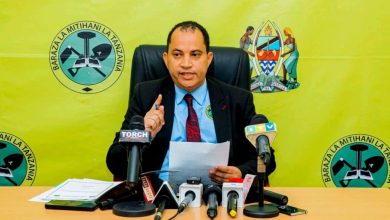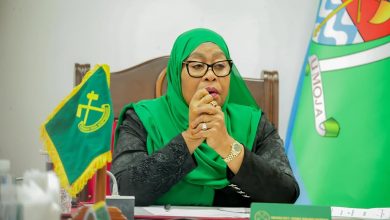Tembo Nickel starts compensation payments

MINISTER for Minerals, Mr Anthony Mavunde, has witnessed the kick off of the compensation to people who have been affected by the Tembo Nickel Project.
Mr Mavunde said the project will have tremendous economic impact in the country and Sub-Saharan Africa, adding that the government will use it as a benchmark for all the critical mining projects in the country.
Mr Mavunde said this in Ngara District, when he visited Tembo Nickel’s Kabanga Nickel Project recently accompanied by Minister for Land, Housing and Human Settlements Development, Jerry Silaa, as well as the Parliamentary committees for energy and minerals and land, natural resources and tourism.
While speaking to members of the communities, Mr Mavunde said the project is of huge benefit to Tanzania, noting that the government has a 16 per cent stake in Tembo Nickel.
“This project is beneficial because currently the world focuses on green energy, and one of the crucial minerals in the process is nickel, which is found in Ngara. You are located in a very important district which is going to be a game changer for our country’s economy.
“This project will write a history in Sub Saharan Africa, and will be amongst the few that will have modern technology for refining the minerals that will be mined here. This modern technology will have a much lower environmental impact, and this project will be used as a benchmark for all subsequent projects in the strategic minerals space and value addition,” elaborated Mr Mavunde.
He said currently the demand for nickel in the world is 10 million tonnes per annum and it is expected to increase come 2050.
“Tanzania wants to participate fully in the strategic minerals and green energy space, for the benefit of Tanzanians and the global economy at large,” he said.
He added that besides the refinery in Ngara District, Tembo Nickel will also have a refinery in Kahama District in Shinyanga Region.
“Tembo Nickel will build a refinery in Kahama with full beneficiation,” stressed Mr Mavunde.
Minister Silaa praised Tembo Nickel for the relocation process, saying that it has adhered to both national and international laws and standards that will greatly reduce grievances from the affected communities.
“The government is a shareholder so we have your interests at heart; a total of 1,339 households will be affected.
“This project is guided by IFC Standard Principal Number Five, which addresses the relocation of affected communities. By using that, Tembo Nickel has fully engaged communities though its Relocation Action Plan. This has significantly reduced grievances and for this process I congratulate Tembo Nickel because by using these standards lives of those affected will be improved.
“Currently people who have been affected with the project are having their entitlement briefings and their compensations are being disclosed, they will then sign their agreements for compensation. Construction of model relocation houses is underway and this will be done at great momentum so the project can move fast,” he said.
On his part, Tembo Nickel Chief Executive Officer, Mr Benedict Busunzu, said the project affected people who are divided into two groups. The first group of 990 people are those with farms but are not residents of the area and that residents are 349.
He said all the project affected people have undergone financial literacy training, which has gone hand in hand with opening of special bank accounts which will be used for making compensation payments.
“We have ensured that women are included in every step of the process and so married people will have joint accounts and it is our hope that both husband and wife will oversee these compensation payments together,” he emphasised.
Speaking at the occasion, Busunzu said “This exercise is not an event but rather a process which has taken a good while and today, we have reached a milestone where we will start compensation payments to the project affected people. We also want to stress that because it is a process there are still quite a few things that still need to happen before we can actually start our mining activities.
“Paying compensations is one thing but more importantly we want to ensure that the project affected people are prepared for a new life in their new locations, in their new houses but also to have livelihood restoration programmes that will lift them economically,” he said





